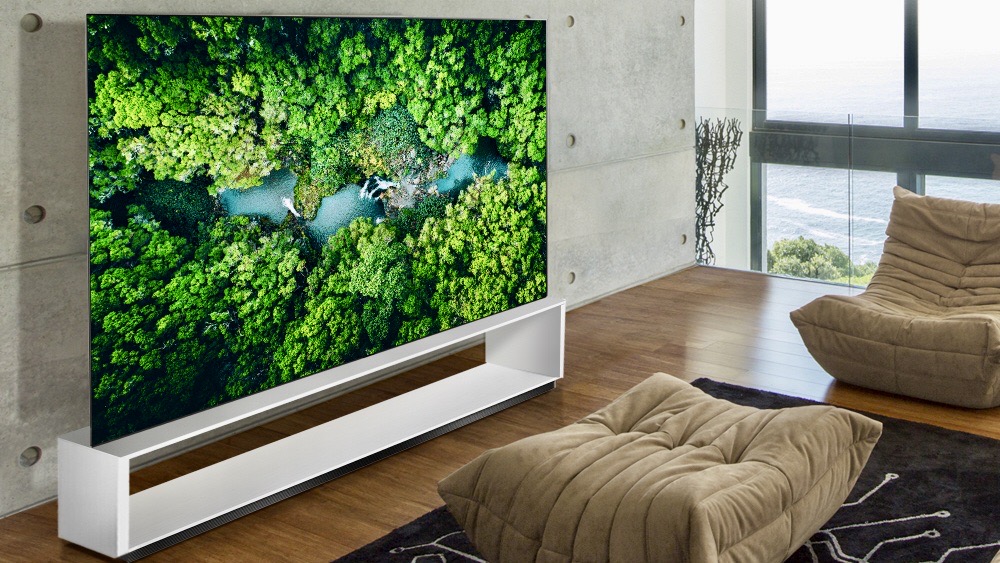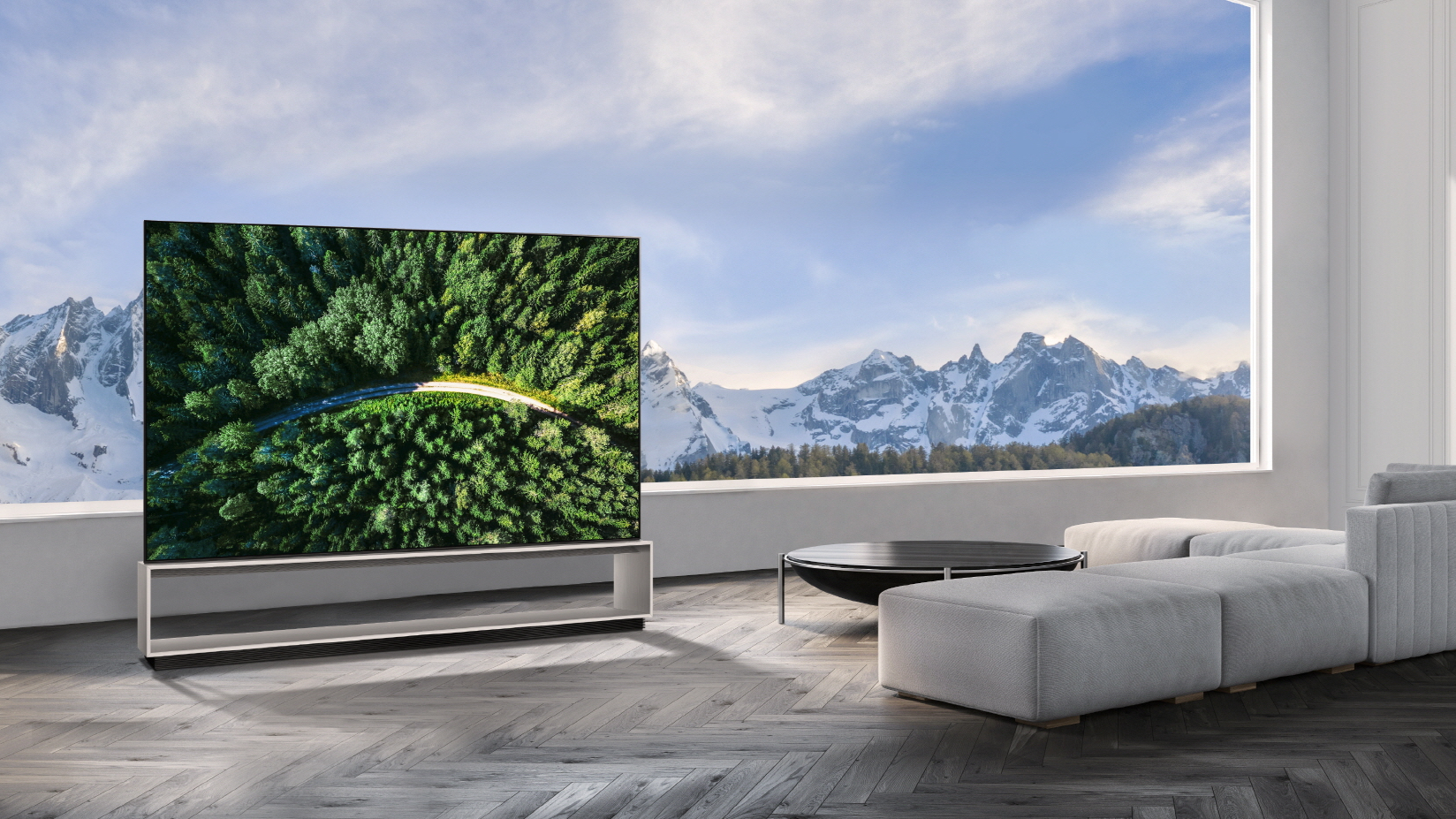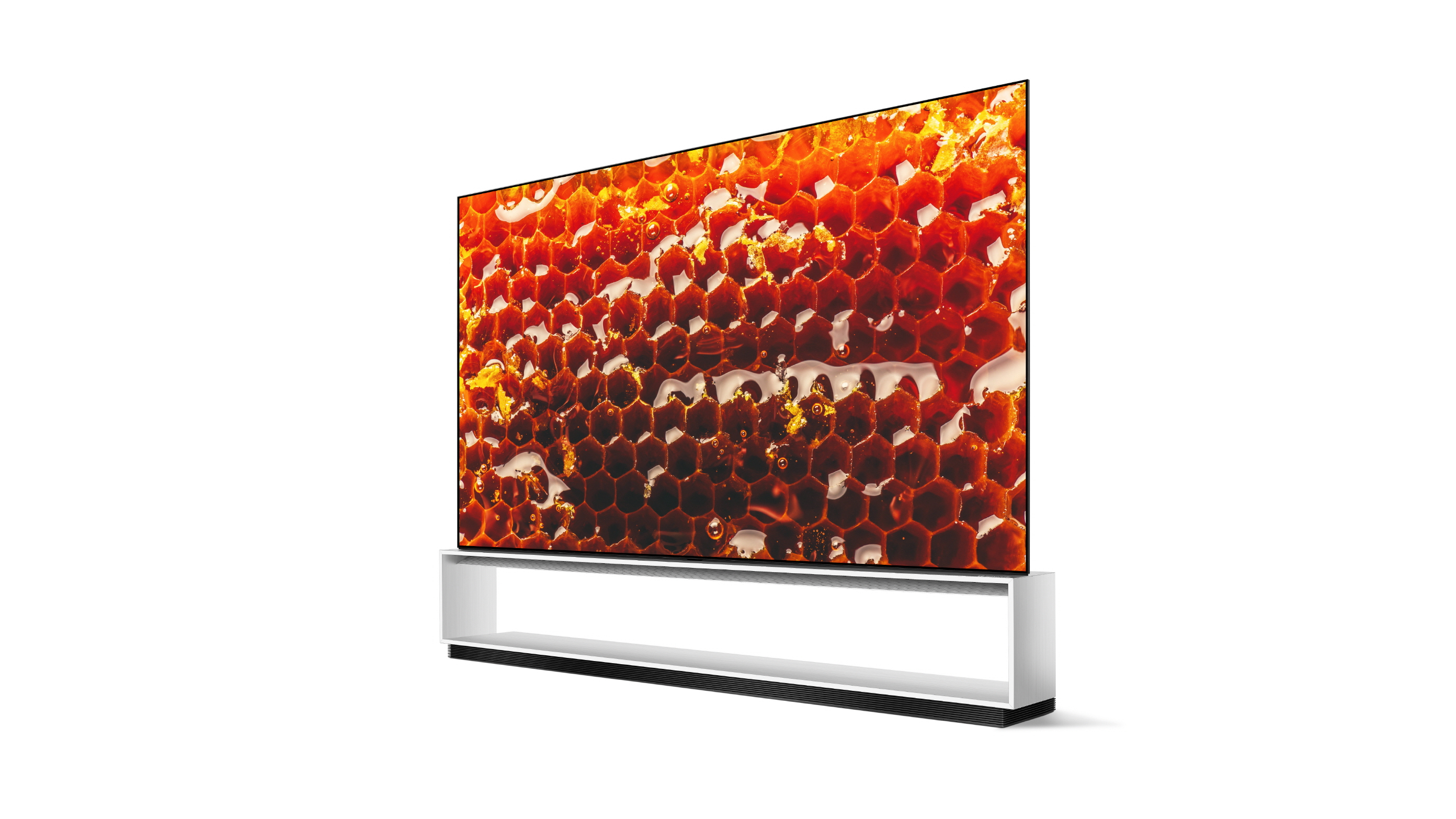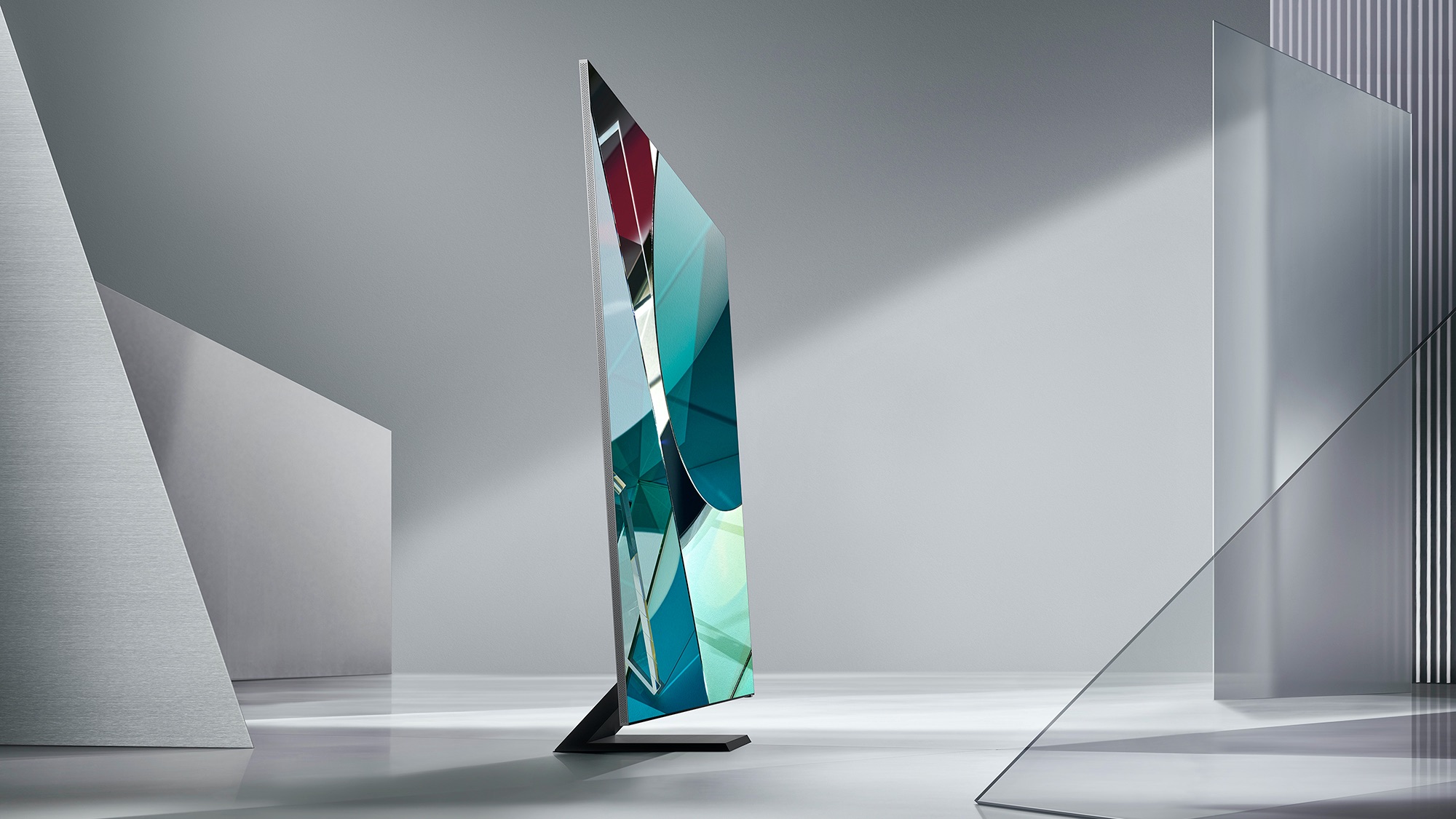Should I buy an 8K TV?
We explore the pros and cons to buying an 8K TV over a 4K TV


Get all the latest news, reviews, deals and buying guides on gorgeous tech, home and active products from the T3 experts
You are now subscribed
Your newsletter sign-up was successful
Choosing the best TV is really, really hard – there are so many options from different manufacturers with a tonne of confusing names and specs to choose from.
I've been on the hunt for a brand new TV for some time and thought it might be useful to others if I shared my findings investigating buying an 8K TV, which are some of the highest-end TVs on the market right now.
There's a lot of different factors in play: overall size, resolution, ports, speaker systems (and whether you need the best soundbar), and the general needs of your TV, whether that be watching Blu-Rays, playing games, or just watching TV.
Nowadays, Netflix, Disney+, Apple TV+, and the other best streaming services all offer ultra-high resolution content (albeit slightly below 8K), which can absolutely pop with the right hardware.
On top of that, the PlayStation 5 and Xbox One X both support super high resolution gaming, sometimes with upscaling, making one of the best 8K TVs theoretically ideal.
If you were feeling extremely brave, you could even link up the best gaming PCs, some of which could truly output games at 8K.
So, should I buy an 8K TV? Let's find out.
Get all the latest news, reviews, deals and buying guides on gorgeous tech, home and active products from the T3 experts
Reasons why I should buy an 8K TV

The main reason for buying an 8K TV is also the most obvious: you want to watch 8K content and anything else, even the best 4K TVs, just won't do the trick.
Taking a step back, 8K refers to the TV having a 8,000 pixels (or thereabouts) across, just as 4K means the TV having 4,000 pixels across. That means that most 8K TVs actually have resolutions along the lines of 7680x4320, or something similar. In total, you'll be looking at around 33 million pixels, which is absolutely bonkers.
While this might seem like wilful mis-marketing, having that many pixels still makes for a pretty incredible viewing experience, especially for UHD content.
All 8K TVs come with upscaling technology to make sure that games, movies, TV shows, and so on look the same or better than their 4K counterparts. For the cinephiles among you, 35mm film is around 6K, while IMAX 70mm is around 12K (with some caveats), so 8K is... a lot.
In terms of actual usage, both the PS5 and Xbox One X can support 8K gaming – as long as you have the right hardware, which you would if you bought an 8K TV. Of course, for some gamers, 4K is enough and the benefits come from higher frame rates.
One of the final benefits is that the space inside the physical hardware of an 8K is likely to be large: most of them start at 60-plus inches and go up from there. As such, the speakers inside your TV are likely to be pretty good by (admittedly low) TV standards. We still recommend getting one of the best soundbars, of course, but it's less of a necessity than other TVs.
Overall, getting an 8K TV means you're getting literally the best TV on the market: nothing will beat it in terms of size, features, resolution, contrast, motion processing clarity, pixel technology, the list goes on. It's the best of the best by some margin.
Reasons why I shouldn't buy an 8K TV

Now, getting the best of the best comes at a price: just as the iPhone 13 Pro Max, 16-inch MacBook Pro, or Samsung Galaxy S22 Ultra are expensive, so too will your brand new 8K TV – perhaps even punishingly so.
From our exhaustive list of the best 8K TVs, the top billing and T3 Award winning Samsung QN900A starts at around £4,449 for the 65-inch model and goes up to an eyewatering £9,999 for the 85-inch. So, not for the faint of heart.
Of course, what you're actually getting when the buy the QN900A isn't just the best 8K TV but the best overall TV. It's literally the most elite TV we've ever used and on that basis the price tag is explained, if not justified. (Thankfully, Samsung also makes a slightly cheaper 4K version.)
While the QN900A is super expensive, you can go for something slightly cheaper: the Samsung QN800A, one model down, starts at around £2,499 for the 65-inch and goes up to a more reasonable £4,999, but this is truly the exception.
Besides price, an 8K is likely going to be really huge, probably too big for most living rooms, especially in small flats. We haven't seen an 8K TV that clocks in smaller than 60-inch on our travels and for (somewhat) good reason: squeezing that many pixels into a smaller panel is hard.
The other downside is that pretty much no content is actually available natively in 8K, mostly because the barriers to entry for getting a device that can play it are too high. BT has been trailing 8K sports content, but that seems like quite an extravagant reason to invest upwards of £3,000.
Gaming is a little closer, with the PS5 and Xbox One X both promising to support 8K down the line but neither doing so in a meaningful sense right now. Both have 8K HDMI support, though, so it's definitely possible.
One last consideration needs to be your broadband: streaming 4K (or higher) content over a slow broadband connection isn't going to be great, so keep that in mind.
Oh, and your old HDMI ports can't even manage 8K: you'll need to be using the new HDMI 2.1 spec or else you'll be limited to HD or 4K. Sorry!
So should I buy an 8K TV?

The reason you would buy an 8K TV is fairly simple: You want the absolute best TV that you can buy and don't care how much it costs. For that, you can't beat getting a brand new 8K TV.
For everyone else, something a little more... conservative might be the order of the day and there are plenty (literally hundreds) of excellent 4K TVs available for a fraction of the price, plus some quality UHD models that don't break the bank.
But if you have the space to fit an 85-inch TV, and don't mind spending £4,000, then getting an 8K TV makes perfect sense. After all, people buy supercars just to drive them at 30mph around London – the same logic applies here.
- We've found the best OLED TVs

Max Slater-Robins has written for T3 now on and off for over half a decade, with him fitting in serious study at university in between. Max is a tech expert and as such you'll find his words throughout T3.com, appearing in everything from reviews and features, to news and deals. Max is specifically a veteran when it comes round to deal hunting, with him seeing out multiple Black Friday campaigns to date.